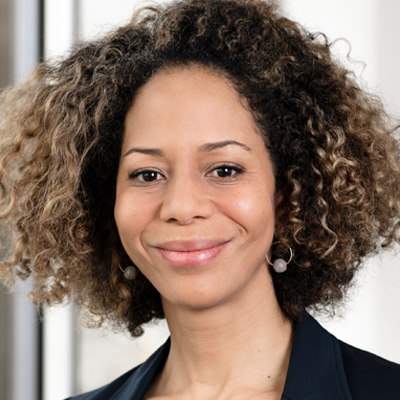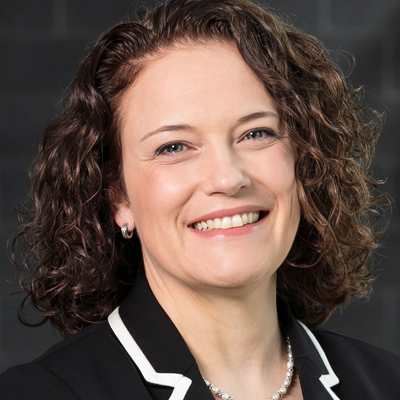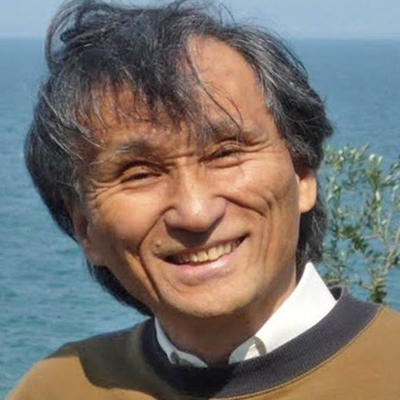About
One of the main focuses of current research is to define the boundaries of context and culture (C&C) as a theoretical concept and what constitutes the best methods, techniques and tools in order to collect, analyze and model it from an adaptive learning perspective.
More
Until recently, C&C modelling was considered an intrinsic part of the various classical ITS architecture models. Aspects of C&C were therefore partially covered under the domain, learner, pedagogical and communication models. Now, however, the advent of big data in education and significant innovations in artificial intelligence are opening new doors for us to analyze and model C&C differently, if we are able to take advantage of the information available through the learning analytics process. Big data offers an exciting opportunity for us to look at C&C modelling for ITS through a new lens. Do we need a fifth model? Should we view it as another layer in the ITS architecture? Let's start thinking about it. In today's era of adaptive learning delivering anything learners need, anywhere and at any time, the potential for context and culture-aware ITS could be huge. What would knowledge representation and reasoning mechanisms look like in ITS? What kinds of limits might C&C represent for ITS? How can we identify or measure these limits? Can ocular and biometric measurement play an instrumental role? What are the logical next steps in terms of conducting studies about context and culture-aware ITS and gathering and analyzing data about context and culture?
Program
9:00 a.m. Beginning of workshop
9:20 a.m. Beginning of the session 1: Modelling Context and Culture for ITS: theoretical/conceptual framework and related problematic
10:30 a.m. coffee break
11:00 a.m. Continuation of the session 1
11:30 a.m. Beginning of session 2: Impact of Culture and Context in ITS: What can learn from empirical studies?
12:30 p.m. lunch break
2:00 p.m. Continuation of session 2
2:30 p.m. Beginning of session 3: What is next for Context and Culture in ITS? Emerging themes
Invited Speaker: Jacqueline Bourdeau
Subject: Putting the Context Modelling Chain into Perspective, a bottom-up approach to aligning different levels of modelling. Starting from the problematic of domain context modelling (e.g. Domain context attempts, design of generic tools that allows to model the contexts of domains). Then attempts to model context meta-model. The higher-level modelling (as proposed by Riichiro and Isabelle) to connect the context modelling to the higher-level ontology including culture modelling.
3:00 p.m. coffee break
3:30 p.m. Continuation of session 3
The chair will ask people to form small groups led by a senior researcher (preferably). Each group will be assigned to a question/theme related to the workshop’s topics. 3:45 p.m. Round Table—Open discussion of themes with a moderator, Roger Nkambou.
- For each theme, one designated spokesperson (preferably a senior researcher) per group will summarize the emerging thoughts of his group to the assembly for discussion.
- Open discussion about each theme, then we move to the next one.
- Synthesis of what we have learned so far and from this workshop.
- Conclusion: What were the novel insights and take home points for you? What are key emergent themes and topics?
4:45 p.m. Workshop closing
- Summary of the day.
- Planning & Next Actionable Steps: What are potential next steps after this workshop? e.g. Report, Future Collaborations, Workshops, Special Issues.
- Conclusion
Committees
Organizing committee
-

Valery Psyché
Valery Psyché
TÉLUQ University, Canada
Valéry Psyché is a full professor in Educational Technology at TÉLUQ University, Québec, Canada since October 2017. She has a Ph. D. in cognitive informatics and a M. Sc. in physics from the University of Quebec at Montreal (UQAM), and B. Sc. in physics and mathematics at Joseph Fournier University in France. During her Ph. D. she specialized in ontological engineering with Riichiro Mizoguchi and Jacqueline Bourdeau and in Intelligent Tutoring Systems with Roger Nkambou. Since then, she is involved in the Artificial Intelligence and Education and in the Intelligent Tutoring Systems community. During the fifteen years, she was involved in several national and international research projects on topics such as ontological engineering, knowledge engineering, pedagogical engineering, intelligent tutoring systems and authoring systems. Since 2016, she is a co-researcher on the TEEC project, a France/Quebec collaboration project which focuses on the impact of the context in the learning process. To learn more about Valéry, go to her google scholar page: https://scholar.google.ca/citations?user=hnd_elAAAAAJ&hl=fr
-

Isabelle Savard
Isabelle Savard
TÉLUQ University, Canada
Isabelle Savard has been a professor at TÉLUQ University since January 2017. She completed her master’s in Educational Technology at Laval University in 1996. Since then, she has worked as an educator and technology integration coordinator in Zambia (Africa), as an instructional designer and pedagogical advisor at the Centre for e-Learning at the University of Ottawa and in the Faculty of Medicine at Laval University, and as a research assistant at the LICEF Research Centre (TÉLUQ), where her primary focus was the quality of learning object repositories and innovative instructional design models. She holds a doctorate in Cognitive Informatics, a program offered jointly by TÉLUQ and UQAM. Her thesis, focused on cultural variables in instructional design, is entitled “Modélisation des connaissances pour un design pédagogique intégrant les variables culturelles.” She completed her doctoral research field work at the Virtual Center for Innovative Learning and Technologies (VCILT) at the University of Mauritius, where she observed and analyzed instructional design practices. In 2016, she completed a post-doctorate at the Japan Advanced Institute of Science and Technology (JAIST) in Japan, where she worked on an upper ontology of culture. She works on tools to help instructional designers, teachers and learners to deal with cultural variables and to enable flexible instructional design.
-

Riichiro Mizoguchi
Riichiro Mizoguchi
JAIST, Japan
Riichiro Mizoguchi received Ph.D. degrees from Osaka University in 1977. His research interests include non-parametric data analyses, knowledge-based systems, ontological engineering and intelligent learning support systems. He has been intensively involved in organizing many international conferences as Conference chairs, Program chairs and Program committee members. Dr. Mizoguchi was President of International AI in Education Society and Asia-Pacific Society for Computers in Education from 2001 to 2003 and President of Japanese Society for Artificial Intelligence (JSAI) from 2005–2007. He received honourable mention for the Pattern Recognition Society Award, 1985, Best paper award of the Institute of Electronics, Information and Communication Engineers in 1988, 10th Anniversary Paper Award of JSAI in 1996, Best paper award of ICCE99, Okawa Prize (Ontological Engineering) in 2005, Best paper awards of JSAI in 2006 and 2013, Best paper award of ICCE2006, and Best paper award of Japan Society for Information and Systems in Education in 2010. He was Vice-President of SWSA (Semantic Web Science Association) and Co-Editor-in-Chief of J. of Web Semantics from 2005 to 2009 and from 2008 to 2011, respectively. He is currently associate editor of ACM TiiS and an editorial board member of some international journals such as Applied Ontology.
-

Jacqueline Bourdeau
Jacqueline Bourdeau
TÉLUQ University, Canada
Jacqueline Bourdeau is a full professor of Educational Technology at TÉLUQ University, Québec, Canada, where she is the head of graduate programs in Educational Technology. She specializes in Instructional Design and Intelligent Tutoring Systems, and is involved in the Artificial Intelligence and Education community and in the Intelligent Tutoring Systems Conference. In 2010, she co-edited a book entitled “Advances in Intelligent Tutoring Systems”, published by Springer.
Program Committee
- Jacqueline Bourdeau, TÉLUQ University, Canada;
- Weiqin Chen, University of Bergen, Norway;
- Ben Daniel, University of Otago, New Zealand;
- Thomas Forissier, University of Antilles, France;
- Monique Grandbastien, LORIA, Université de Lorraine, France;
- Seiji Isotani, University of Sao Paulo, Brazil;
- Jelena Jovanovic, University of Belgrade, Serbia;
- Alain Mille, University of Lyon, France;
- Riichiro Mizoguchi, JAIST, Japan;
- Permanand Mohan, University of the West Indies, Trinidad and Tobago;
- Roger Nkambou, University of Quebec at Montreal, UQAM, Canada;
- Valery Psyché, TÉLUQ University, Canada;
- Isabelle Savard, TÉLUQ University, Canada;

